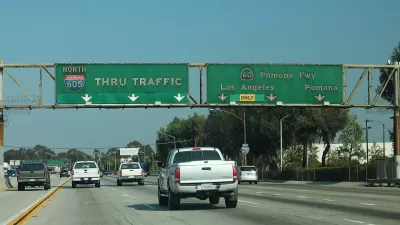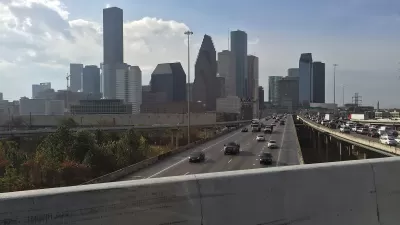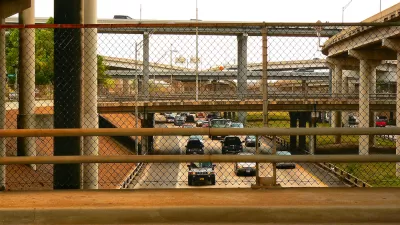A tent city occupation in Atlanta is among several recent actions in cities around the country. Residents fearing displacement at the hands of publicly supported private development are organizing, and running for office, against it.
If you’re up-to-date on your gentrification news, you may have heard that residents of four historically African-American neighborhoods in Atlanta are in the midst of an occupation of Turner Field—the former home of the Atlanta Braves.
The organized resident groups have demanded, since 2013 when the baseball team announced it was leaving, to be considered and included in the planned development of 67 acres of commercial and housing on the land. So far, they’ve reported little to no luck in getting a community benefits agreement considered by the city or the developers, and they have escalated their protest to erecting a tent city on the property. Residents have been camped on the property since April 1 demanding that the proposal be acknowledged and addressed.
In a project called the “deal of the year” by the Atlanta Business Chronicle, the City of Atlanta sold the land to Georgia State University (GSU) and the Carter, Oakwood Development and Healey Weatherholtz joint venture last year. Two resident groups, the Turner Field Community Benefits Coalition and Housing Justice League, have organized community members from the historic towns of Summerhill, Peoplestown, Mechanicsville, and Pittsburgh to push back against planned development they say has purposely excluded them.
“We didn’t make this decision to pitch tents lightly,” says Peoplestown resident Columbus Ward in a recent press release. “We have families, we have jobs, we have responsibilities. But at the end of the day, Carter, GSU, and the city are threatening the very existence of our neighborhoods. This is a fight for our right to remain and thrive. We refuse to be seen as commodities. We are real people.”
This community action is but one among several in cities around the country where longtime residents fear displacement at the hand of publicly supported private development, and have begun organizing against it.
FULL STORY: A Community Benefits Proposal Is Ignored. Is Displacement Far Behind?

Maui's Vacation Rental Debate Turns Ugly
Verbal attacks, misinformation campaigns and fistfights plague a high-stakes debate to convert thousands of vacation rentals into long-term housing.

Planetizen Federal Action Tracker
A weekly monitor of how Trump’s orders and actions are impacting planners and planning in America.

Chicago’s Ghost Rails
Just beneath the surface of the modern city lie the remnants of its expansive early 20th-century streetcar system.

Bend, Oregon Zoning Reforms Prioritize Small-Scale Housing
The city altered its zoning code to allow multi-family housing and eliminated parking mandates citywide.

Amtrak Cutting Jobs, Funding to High-Speed Rail
The agency plans to cut 10 percent of its workforce and has confirmed it will not fund new high-speed rail projects.

LA Denies Basic Services to Unhoused Residents
The city has repeatedly failed to respond to requests for trash pickup at encampment sites, and eliminated a program that provided mobile showers and toilets.
Urban Design for Planners 1: Software Tools
This six-course series explores essential urban design concepts using open source software and equips planners with the tools they need to participate fully in the urban design process.
Planning for Universal Design
Learn the tools for implementing Universal Design in planning regulations.
planning NEXT
Appalachian Highlands Housing Partners
Mpact (founded as Rail~Volution)
City of Camden Redevelopment Agency
City of Astoria
City of Portland
City of Laramie





























